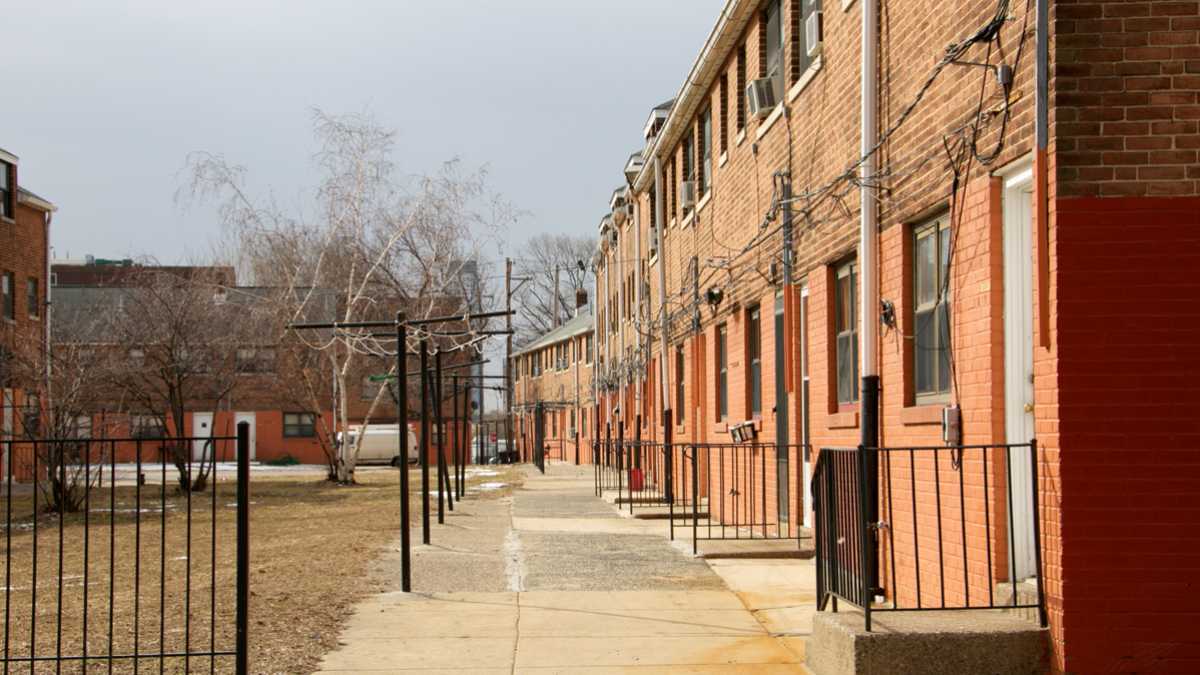Pa. explores tapping Medicaid for housing as step toward controlling health costs
Listen
(Nathaniel Hamilton/for NewsWorks)
Medicaid normally pays for doctor or hospital visits, but what about a place to stay?
Health advocates are gathering in Philadelphia this week to talk about using Pennsylvania’s Medicaid dollars for housing.
Louisiana, Texas and several other states now use part of their Medicaid budget to help people find housing and stay there. Patrick Keenan of the Pennsylvania Health Access Network says his group is starting a conversation to push Pennsylvania to take the same step.
Spending federal health care dollars to prevent homelessness is a smart investment because it can lower health care costs, Keenan said.
In a small study in Los Angeles, the average health care costs for a group of homeless hospital patients dropped to about $16,000 from $59,000 after they were connected to housing.
“It’s based in research, it’s cost effective. It’s not cheap, but it does pay dividends,” said Liz Hersh, director of the office of supportive housing in Philadelphia.
Her team’s goal is “making homelessness rare, brief and nonrecurring,” she said.
Homeless people with mental health or substance abuse problems may need more intensive case management than the standard support provided by Medicaid.
As example, those with serious mental health conditions can face discrimination when they try to rent an apartment. “Supportive housing” assistance paves the way, Keenan said, and outreach counselors can reassure landlords that prospective tenants have the outside support to be a good bet.
“And the landlords know where to turn when someone is having an issue,” he said.
Philadelphia recognizes the link between health and home, according to Hersh.
“Where do you put your medication? Where do you sleep? Where do you go to your doctor’s appointments from?” she said. “There’s just no way to be healthy if you don’t have a place to live … it’s really that simple.”
Since Pennsylvania expanded eligibility for Medicaid, Keenan’s group has been helping people get connected to health coverage. Months later, he said, those new enrollees check back.
“They’d stop by the site, and we’d ask them how they are doing. And they’d ended up in the emergency room again because they couldn’t adhere to the treatment plan that their doctor prescribed because their medicine was stolen in a shelter,” he said. “And they couldn’t get on a regular schedule because they were constantly searching for the next place to sleep.”
“It [supportive housing] enables people—especially those who are chronically homeless who have serious mental health problems and or longstanding substance abuse problems be able to recover,” Hersh said. “Instead of bouncing from jail to hospital to street.”
As a next step, the Pennsylvania Health Access Network will help smaller service organizations work through the confusing licensure process and maze of paperwork needed to bill Medicaid.
States using Medicaid funds to pay for housing support typically broker a special waiver agreement with the federal government.
WHYY is your source for fact-based, in-depth journalism and information. As a nonprofit organization, we rely on financial support from readers like you. Please give today.

